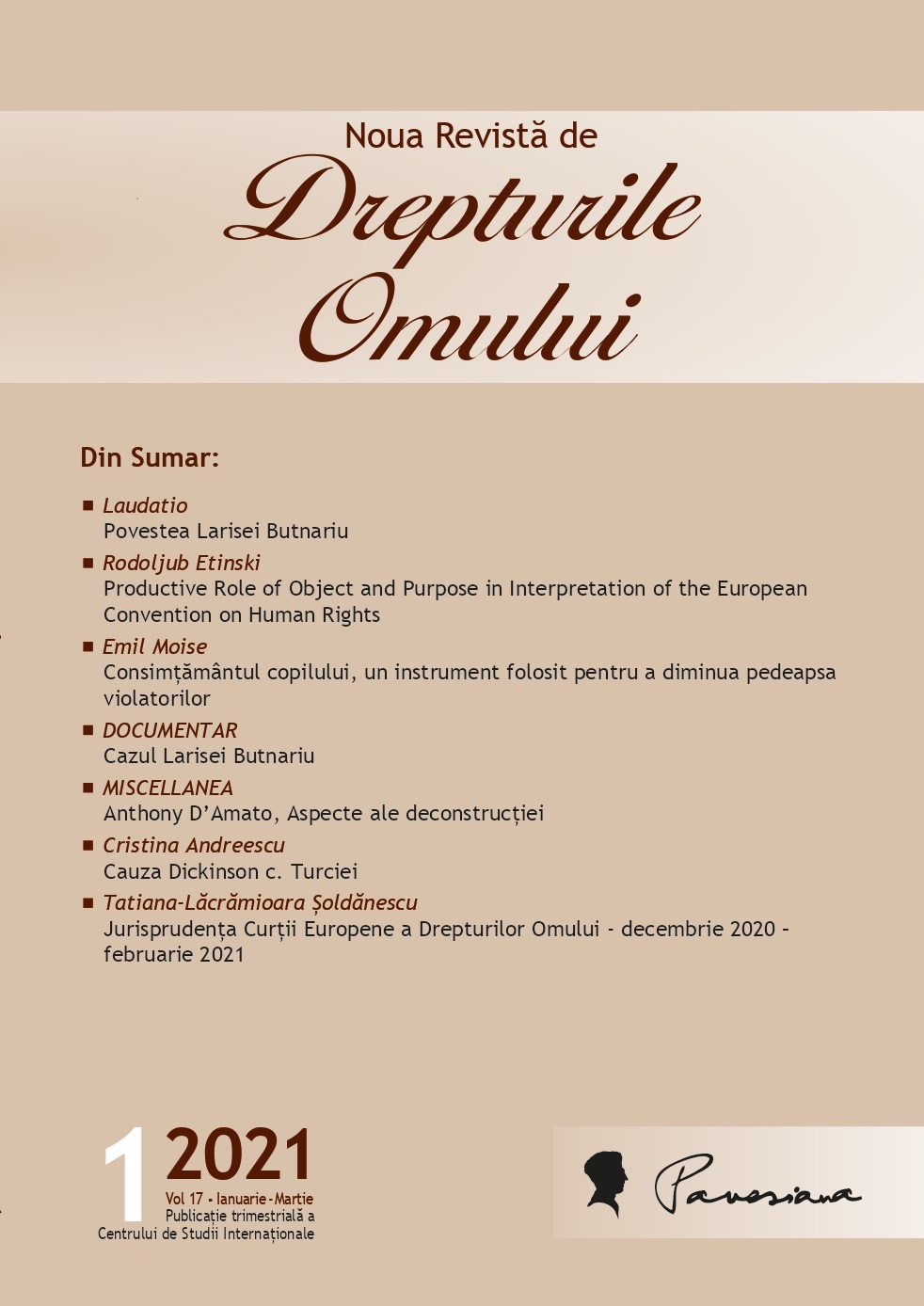
We kindly inform you that, as long as the subject affiliation of our 300.000+ articles is in progress, you might get unsufficient or no results on your third level or second level search. In this case, please broaden your search criteria.

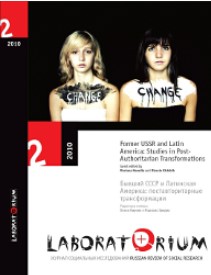
It was June 2005 at El Ceibal, a peasant community located in the north of the province of Santiago del Estero, Argentina. A judicial edict had penetrated this peasant world, forcing change on all symbolic objects: the judicial language perforated the cognitive structures of the subalterns; the peasants’ low voices (Guha 2000) transformed into high counter-hegemonic voices; the monotonous monologue of the litigation was altered by polyphony; some female voices, suffocated by chauvinism, found ways to transform themselves into high public voices. On June 27, 2005, just two days before the set date, the judge ruled to suspend the auction. Those “with no part” (Rancière 1996) would now be counted as participants. The subalterns could take advantage of this: soon they would own titles to the land they believed to be theirs.
More...
Father Daniil Sandu Tudor remains one of the most solar personalities in the perimeter of Romanian spirituality, a figure that indelibly imprinted the Romanian intellectuality, both the secular and the ecclesiastical one, through the conviviality of the Rugul Aprins (The Burning Bush). But in the following, as the title of the present study also states, the author intends to deal only with the issue of Sandu Tudor's reception during the Second World War, when, as it is known, he was mobilized. File no. 013495, vol. 1 and 2, Criminal fund, located at the Archive of the National Council for the Study of Security Archives (A.C.N.S.A.S.), represents a collection of disturbing documents that offers many clear (the author considers them as so) details related to this subject. From the first sheet of the aforementioned file, vol. 1, represented by the Cover of the File no. 1811/1950, of the Bucharest Court, the Third Criminal Section, „Posteucă Dumitru and Teodorescu Alexandru”, the mention „War crime” shocks. Of course, this raises multiple questions. In the following, the author will use an evolutionary, chronological x-ray of the data, meant to offer the potential reader a systematic form of exposing the conduct of the investigation and of the trial of the Monk Agaton.
More...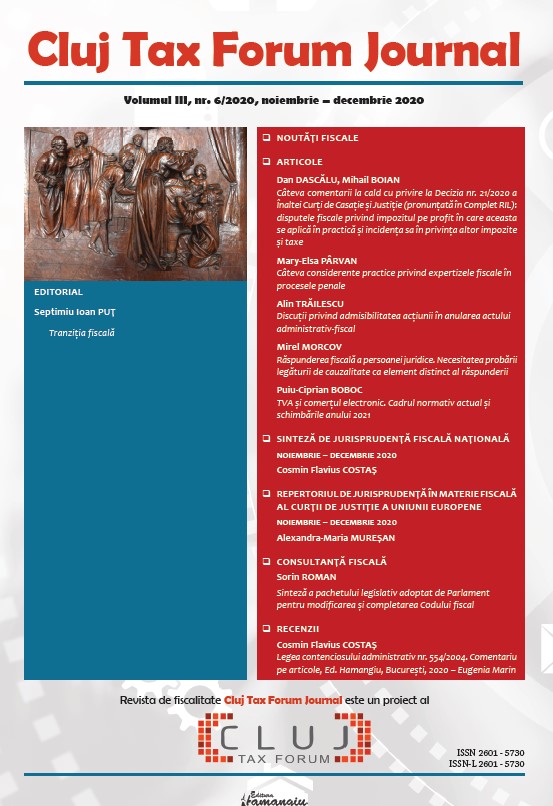
In line with its previous case-law, the High Court of Cassation and Justice decided to quash a judgement of the Cluj Court of Appeal and send the case back to the first instance court so that evidence is properly administered. Although the lack of interest from the Cluj Court of Appeal particularly for a tax experts’ report was the main reason for the success of the appeal, the High Court also pointed out the first instance courts have the obligation to pay attention to supplementary reasons that were not put forward in the administrative appeal. In order to rule on this matter, the High Court considered that taxpayer was never granted access to the administrative file of the tax audit and was therefore unable to present all its arguments.
More...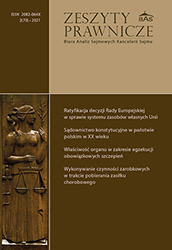
In the opinion of the author certain provisions of the proposed bill raise constitutional doubts or may cause constitutional reservations, inter alia, in the light of the principle of specificity of law, the principle of separation of powers, the scope of the subject matter of parliamentary rules of regulation. Furthermore, insofar as the bill relates to the payment of compensation and redress, it appears to be burdened with a constitutional defect of the nature of the so-called legislative omission. The author of the opinion points out that the bill also lacks a number of solutions concerning the payment of compensation and redress.
More...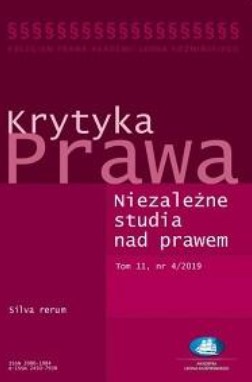
The aim of the present paper is to operationalise the concept of the political in order to make it available as an analytical category for the critical study of judicial decisions (case law). The concept of the political is understood here, following, in particular, Chantal Mouffe’s agonistic theory, whereby it is a dimension of a social antagonism. Such an antagonism can be played out not only in the process of legislation (creation of abstract and general legal norms), but also in the process of adjudication (the so-called ‘application of law’, which, however, always has a creative element to it). As an analytical category, the political can be operationalized in order to subject judicial decisions to a critique which goes beyond the question of the ‘correct’ interpretation and ‘application’ of law in a given case, but puts in the spotlight real social, political and economic conflicts that are at stake. The analytical framework is exemplified by judicial decisions of the European Court of Justice.
More...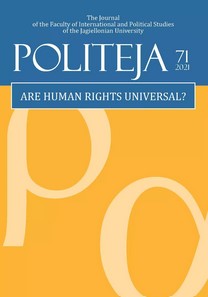
The countries of the European Union have decided to share a peaceful future based on common values. However, there are still disputes over the understanding of the most fundamental issues related to the protection of human rights, including protection of the right to life. The author shows that the source of European culture is Christian. However, it is not the only source of shaping the values of Europe. As an example, she cites the differentiation of constitutional legal regulations or controversies related to the jurisprudence of the ECHR. She analyzes the judgment of the Polish Constitutional Tribunal declaring the unconstitutionality of the provisions allowing abortion if prenatal tests or other medical conditions indicate a high probability of a severe and irreversible fetal impairment or an incurable life-threatening disease. This judgment caused enormous opposition from a part of the society. This problem proves that a compromise has not yet been made on the issue of abortion. It is, therefore, difficult to claim that human rights protected in the European Union are given universal meaning.
More...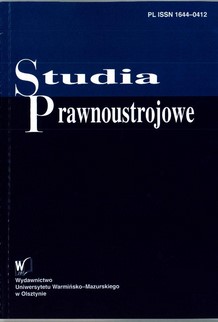
The author critically refers to the resolution of the Supreme Administrative Court, in which it was considered that the only and excluded condition for stopping the driving license for exceeding the speed limit by more than 50 km/h in built-up areas is information obtained from an authorized entity. He does not accept the literal interpretation of the provision of art. 7 item 1 point 2 of the Act on the amendment to the Penal Code. without the party’s right to a fair trial, which also arises from international law. According to the author, the Supreme Administrative Court should make a pro-constitutional and pro-convention interpretation, and if necessary refuse to use it as a provision contrary to EU law.
More...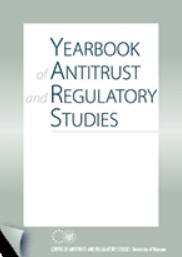
Dawn raids have become an effective tool to enforce EU and national competition laws. Judicial review is an essential mechanism of control over the executive branch against possible misuse of this power. However, this judicial review has shown to have limits; it cannot always guarantee an adequate redress for the affected parties. How to address the limited judicial review to ensure control over dawn raids? This article argues that the limits of judicial review could be addressed by extending the types of controls over this action, i.e. ex ante legislative guidance and internal managerial accountability. The more conceptual argument that this paper puts forward is thus that it is essential to seek connections between different concepts and types of controls to ensure a comprehensive/water-tight system of controls over the actions of the executive branch.
More...
The economic downturn caused by the coronavirus pandemics is expected to result in the increased participation of the state in the functioning of markets. One of the forms of this participation is the recapitalization and state shareholding in commercial enterprises, which could lead to anti-competitive effects to the detriment of competitors and consumers. In this regard, the effective enforcement of merger control rules at the EU and national levels gains in importance. The present paper questions the adequacy of the available merger control standards and assessment tools for taking into account potential anti-competitive effects stemming from ownership and non-ownership forms of state control over undertakings. The analysis is focused on the experiences of Polish state owned enterprises under the EU and national merger control assessment. It was prompted by the notification of the PKN Orlen/Lotos merger that received conditional clearance from the EU Commission.
More...
This case-note offers comments to the judgement of the Court of Justice in another escalators’ case and its potential implications. Given that the preliminary questions rather entail obvious response, the ruling goes beyond expectations. Its reasoning is not based on the necessity to cope with specific national obstacles that was predominantly utilized in face of private enforcement cases. Instead the Court of Justice held that genuinely Article 101 TFEU implies that, probably, any injured party will be entitled to act as a claimant in damages litigation. No room for national legal specificities was left then. Furthermore, the case comment argues that its side back is more economic approach return to the mainstream debate. Aside these and other insights, some misgivings are presented in a context of a certain noticeable tendency in terms of the fashion in which the Court of Justice in genere handles with the cases.
More...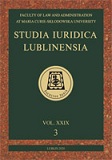
The findings presented in the commentary aim at assessing the legitimacy of the Supreme Court’s view expressed in the decision of 11 January 2018 (III CSK 349/16), according to which the co-owner is obliged towards other co-owners excluded from holding and using the item being the object of fractional ownership to pay the compensation for the use of this item by his household member. The discussion covers the concept and civil-law status of the household member and the admissibility of accepting the household member by the co-owner of a property owned as a fractional ownership. The problems of the co-owner’s liability for the behaviour of the household member and the liability of the household member for his/her own behaviour towards the co-owners deprived of the use of the joint property were also discussed.
More...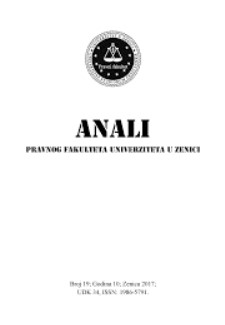
Međunarodni sud u Den Haagu (ICJ; Sud), glavni sudski organ Organizacije ujedinjenih nacija (OUN; UN), u Vijeću sastavljenome od 15 redovnih sudaca i dva ad hoc suca, koje su predložile države u međunarodnome sporu, Gambija i Mijanmar, dana 23. januara 2020. donosi Nalog kojim se državi Mijanmar određuju privremene mjere u parnici pred Sudom između navedene dvije države, članice UN (Gambija od 1965., Mijanmar od 1948.), pa time i stranke Povelje UN i Statuta ovoga Suda, u sporu koji se tiče Primjene Konvencije o sprječavanju i kažnjavanju zločina genocida (Konvencija o genocidu; Konvencija (objavljena u: United Nations, Treaty Series, vol. 78, p. 277)), koja je usvojena u Parizu, u Općoj skupštini UN, 9. decembra 1948. (stupila na snagu 12. januara 1951).
More...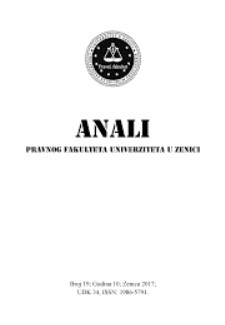
Reformom porodičnog zakonodavstva u BiH, odnosno usvajanjem Porodičnog zakona FBiH (PZ FBiH) još 2003. godine je regulisano da muž nema pravo na razvod braka za vrijeme trudnoće žene ili dok njihovo dijete ne navrši tri godine života. Ovom odredbom je, vjerovatno u cilju zaštite supruge, majke i djeteta, mužu bilo uskraćeno pravo na pokretanje postupka za razvod braka podizanjem tužbe, a u slučaju da do istog nije moglo doći zahtjevom za sporazumni razvod braka, kojim bi brak mogao biti razveden tek nakon proteka najmanje šest mjeseci od zaključenja braka ili pak njegovim poništenjem.
More...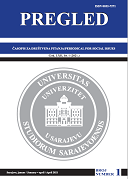
This text refers to an example of judgement in front of the Court of Bosnia and Herzegovina- B&H for crime of sexual violence during the war in the area of municipality Foča, committed by members of Serbian Republic Bosnia and Herzegovina and later Republic of Srpska over Bosnian Muslim citizen. By analyzing a certain number of court sentences for this crime, with the aim of comparing the height of determined punishments in front of International Criminal Tribunal for the former Yugoslavia - ICTY and the judiciary of B&H, this verdict was noticed as a special case in regards to other judgements, which was the reason for writing this text. In fact, the motive for writing this text is a drastic violation of the rights of victim of sexual violence by the Second Instance Panel of the Court of B&H, due to the non-consistent application of the valid legal regulations. What happened in this case is that the council in the first trial in the case of Radio Vuković no.: X-KR/06/2173 reached the verdict “guilty” and sentenced him to 5 years and 6 months, and in the second trial same court, same case number:X-KRŽ05/2174 reached the verdict “released from the charge.” The question is not which court (Haag Tribunal or Court of B&H) pronounces more strict punishments anymore, the question is: Why did the council of Court of B&H in the first trial pronounced condemning and in the second trial, same council, pronounced releasing judgement? It is not excluded that the second instance verdict may be in conflict with the first instance verdict if it is established and proven that... “it has not been proven that the accused committed the criminal offense for which he is accused “, as prescribed in Article 284 c of the Law of the Criminal Procedure of Bosnia and Herzegovina – CPC BiH referred to by the second instance panel. However, the second instance panel did not find anything new. The second instance panel was conducted on the basis of the same facts, circumstances, evidence and legal qualification of the criminal offense as the first instance procedure, so the second instance panel could not to make a different decision from the first instance panel. The decision of the second instance panel is different only because it was made in drastic violation of the applicable legal regulations of Bosnia and Herzegovina. The ICTY has already ruled in similar cases, and this case, which referred to lower ranking perpetrators of crimes and as easier to resolve was formed and completed with the standard A mark, forwarded to the Court of BiH.
More...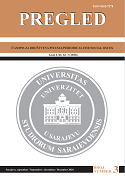
The International Criminal Tribunal for the former Yugoslavia (ICTY) issued a final Judgment against Jadranko Prlić, Bruno Stojić, Slobodan Praljak, ilivoj Petković, Valentin Ćorić and Berislav Pušić, who declared responsible for the joint criminal enterprise (JCE) in Republic of Bosnia and Herzegovina. The Second Instance Verdict affirmed the convictions issued by the ICTY Trial Chamber in May 2013. In addition to participating in a joint criminal enterprise, the Appeals Chamber confirmed the responsibility for the commission of murder, persecution on political, racial and religious grounds, deportations, unlawful detention of civilians, forced labor, inhumane acts, inhuman treatment, unlawful and negligent destruction of large-scale property not justified by military necessity, destruction or intimidation of the intended institutions religion or education, unlawful attacks on civilians and unlawful terrorism of civilians, and individual rape and sexual assault.
More...
Eichmann u Jeruzalemu Hannah Arendt izazvao je kontroverze zbog potpuno pogrešnih razloga. Često je komentirana njezina kritika Judenräte, u vezi suradnje s nacistima zbog zaštite njihovih prijatelja i obitelji, pri čemu su odabirali Židove za slanje u logore, premda je rijetko pažljivo razmotrena. Njezin uvid o banalnosti zla sada je opće usvojen, pa je zbog toga postao laka meta za one koji žele diskreditirati njezinu kritiku sudskog procesa u Jeruzalemu. Međutim, vrlo je slabo shvaćeno njezino odbacivanje legalističkog odgovora izraelskog suda na Eichmannove goleme nepravde, kao i izdvajanje pitanja o ratnim zločinima iz zakona i, umjesto toga, njegovo postavljenje u kontekstu političkog pitanja o mirenju. Stoga njezina knjiga nije provokativna, kao što je trebala biti. Istinski radikalni sud u Eichmannu u Jeruzalemu tvrdnja je Arendt kako je pravo pitanje za izraelski sud bilo mirenje protiv nemirenja, a ne kazna i otuda njezina argumentacija da su izraelski suci trebali imati smjelosti da sude politički, a ne po slovu zakona.
More...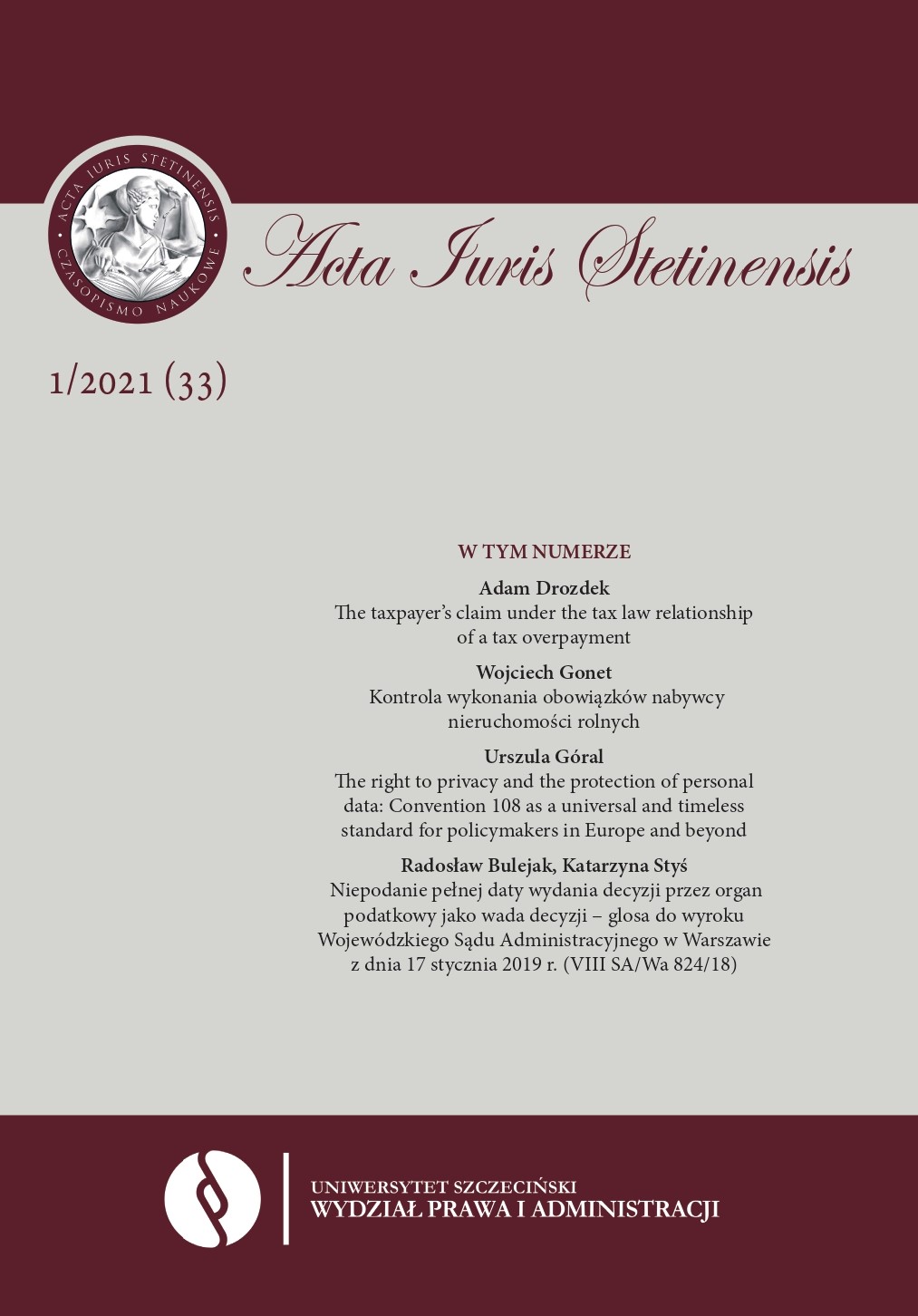
The purpose of the research undertaken in this paper is to analyse the tax claim. It is an institution that has its source in a subjective right. As part of a tax claim, a taxable entity may assert its rights resulting from the obligation-involving tax law relationship of a tax overpayment. The institution of crediting overpayments towards tax arrears and current obligations is a special type of tax claims securing the exercise of the rights of taxable entities under the tax law relationship. The basic research method used for the purposes of the analysis undertaken in this publication is a comprehensive analysis of the normative status of the issues analysed and of selected views of legal commentators and of judicial and administrative decisions.
More...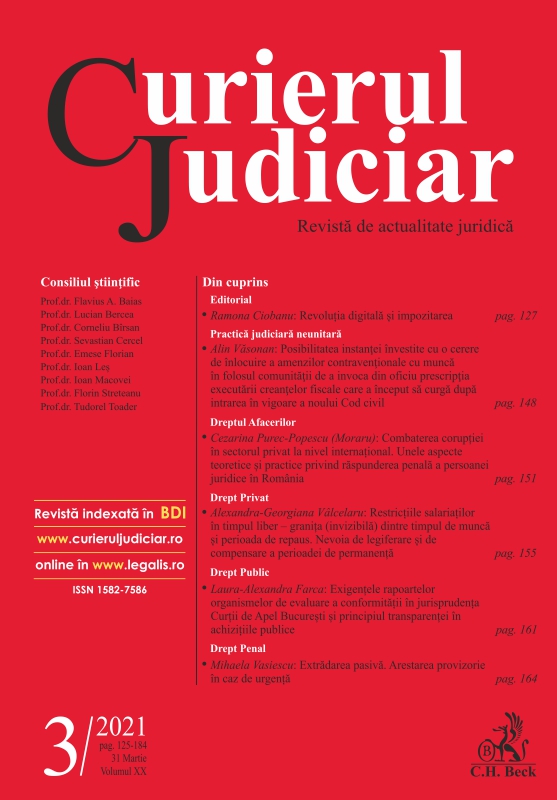
The article is a favorable comment on a recent public procurement case law of Bucharest Court of Appeal in two judgements where the successful bidder submitted test reports issued by conformity assessment bodies. Shortly, these reports were in breach of transparency principle regarding the technical specifications included in the tender documents, as a fundamental principle of public procurement law.
More...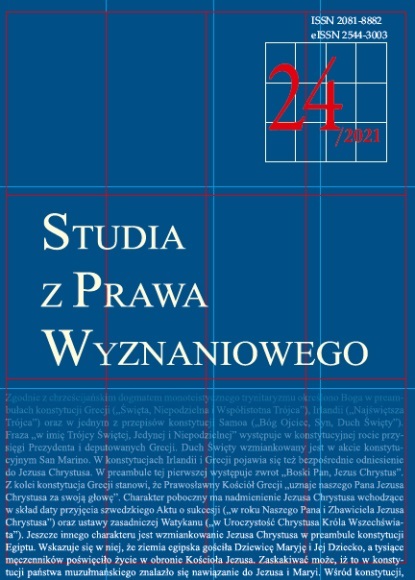
Drawing on the example of the conflicts around the monthly Smolensk commemorations in 2017, the article discusses the issue of taking into account the tradition of Polish religious culture in cases pursued under article 196 of the Penal Code. Using the rule of cultural defense as an analogy, the Author recalls the historical roots of traditional Polish religiosity whose main features crystallized in the baroque (Sarmatism) era. One of the most important features of this religiosity is the close connection between religion and politics. The lack of statehood in the period of partitions and during the communist times enhanced, in a similar way to the diasporic culture of Judaism, the interconnections between religion and secular spheres of life. The Author suggests taking into account the cultural factor when analyzing cases pertaining to offending religious feelings that arise nowadays as the dominant character of traditional religious culture is being undermined. The clash between traditional culture and the liberal and leftist heritage of the Enlightenment (which determines contemporary Polish legal culture) has led to growing divergences in the symbolic sensitivity and perception of the axiological foundations of the State. The preamble to the 1997 Constitution illustrates these divergences well.
More...